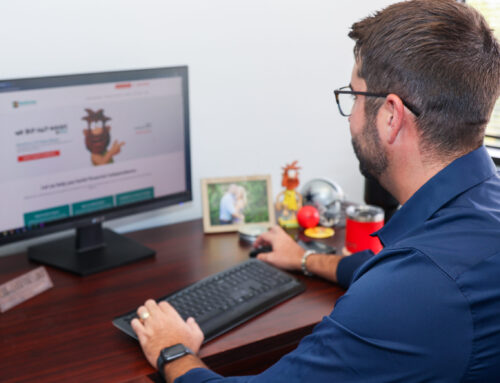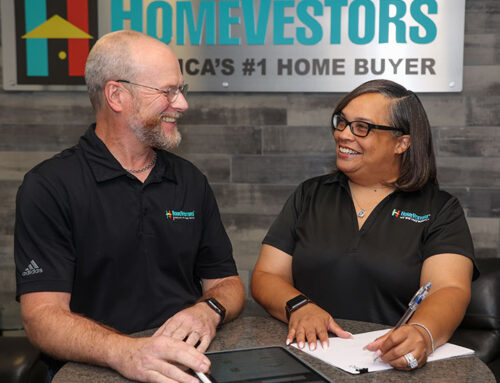
You’ve been thinking of quitting your corporate job and starting a real estate investment business. You’ve been mulling this over for years, in fact. The only thing that’s stopped you from taking the plunge thus far is not knowing if you’ve got what it takes to become a real estate investor–especially with your limited knowledge and experience–and how you can change that. Starting a career from scratch at your age might be intimidating, but not impossible. You’ve seen others do it. And if they can do it, so can you.
As you look around, however, you notice that for some investors success comes easy and, for others, failure hits hard. Of course, you don’t want to be in the latter camp. How do you make that happen? Are there things you should do and things you shouldn’t? For answers to your questions about becoming a real estate investor, where do you turn?
How to Become a Real Estate Investor: The Do’s and Don’ts
With a little elbow grease and a lot of know-how, succeeding as a real estate investor can be a reality. There are solid, quantifiable actions you can take to build a stable investing career and others that will trip you up and waste your time. Let’s dig a little deeper into what it does, and doesn’t, take.
Entrepreneurial Personality? Yes.
Yearning to be your own boss is just the beginning. You may not be crazy about the 9 to 5, but the thought of setting your own schedule and making your own decisions should really hit home. Having an entrepreneurial personality and work style means you crave independence and challenge, approach problem solving with gusto, and view failure as a part of the learning process. It also means you make the effort to communicate and collaborate effectively with colleagues, other industry professionals, and all potential clients. You’re ambitious and analytical, but adaptable–a true leader. And, of course, you have a higher-than-average tolerance for risk.
To prosper as a real estate investor, you’ll need these character traits and more. Obviously, you’ll have a passion for real estate. But if that passion extends toward helping distressed homeowners, improving property values, and facilitating positive change in the community, then the opportunities you seek will eventually be seeking you. If this sounds like it might be up your alley, well, you’re halfway there.
Licensing and Credentials? No.
Some states may require that you get a real estate license to invest as a professional home buyer, but most do not. Obviously, you’ll want to check state laws just to be sure. Either way, there are a few advantages to obtaining licensure that are worth mentioning. For one, you can save about half on commission costs by representing yourself during transactions. You might also cut down on the amount of time you spend just waiting for agents to get back to you. After all, if you can get the info you need, then you can expedite research, communication, and your deals. And with a license, you’ll have access to the Multiple Listing Service (MLS) to source leads on fixer upper homes for sale.
Unfortunately, the added time and money you’ll have to spend on real estate courses, exams, and licensure renewals won’t necessarily earn you a robust investment portfolio or industry credibility. Your savings on commissions won’t necessarily negate the expense of brokerage fees, commission splits, monthly dues, or advertising costs you may be responsible for either. Plus, the best deals on distressed homes are not always on the MLS anyway. It’s probably better to focus your buying, renovating, and selling activities by working with an agent who already knows their stuff.
Training and Mentorship? Yes.
In order to buy, rehab, and sell houses for a profit, you will need real estate investor training. There are a number of skill sets you’ll simply have to develop and refine if you want to optimize your money and time. To start, you’ve got to know how and where to find homeowners of distressed properties who want to sell. When you find them, you need to be able to value a property in its current condition, estimate the cost of repairs, and determine the After Repair Value (ARV) to ensure the likelihood that you’ll see returns. It probably goes without saying that knowing how to finance the deal should also be in your wheelhouse. But understanding every stage of the buying process, from start to finish, will put you a step ahead of your peers. If you can get a little one-on-one coaching to help with project-specific issues, you could be first-in-class.
Buyer beware, though. There are legitimate real estate investing education sources out there, but there are a heck of a lot more scams. Discerning between the two can be a full-time job in-and-of itself. Even when a program seems like it’s on the up-and-up, the likelihood that it’ll cover all the bases, affordably, is close to nil. And you won’t learn everything you need to get ahead from books, weekend seminars, or online ‘gurus.’ You’re better off investing your time in an all-inclusive training like HomeVestors’® that’ll give you the knowledge you need to start investing in real estate right out of the gate.
Business Plan? No.
Many new business ventures start with a business plan. If you want to map where you’re going and how you’ll get there–or you need to in order to secure financing–this document gives voice to every facet of your goals and objectives. It also details the stages you intend to move through to realize profits. It is, essentially, a blueprint. But it’s also a kind of accountability partner–a living, breathing instrument that requires updating so that it, and your business, can evolve. Categories such as Executive Summary, Market Analysis, Marketing and Sales Strategies, Funding, and Financial Projection are designed, in part, to help business owners stay on track. As a new investor, you might think a real estate investment business plan will do this for you. You’re not necessarily wrong, but creating a full-fledged business school-type plan is usually unnecessary.
This is not to say you should just forge forward with no plan of action. Having some investment plan, especially in the beginning, is not a bad idea for setting financial goals even if you don’t go full bore and write a whole business plan. Neither is having someone–or an entire team–on hand to hold you accountable for crossing your “T’s” and dotting your “I’s” when the going gets tough. Communicating on paper is good, but connecting with people is better.
Networking? Yes.
Networking is essential to building, and maintaining, relationships in any business–especially when you’re in the business of working with people. Not only do you want members of the community you serve to know you exist, you want them to know they can trust you. Networking also provides you with opportunities to meet other professionals with whom you can rely on for advice or help with your projects. For real estate investors, conventional means of networking might include attending one-day or weekend conferences, joining an investor club, going to Meetup groups, or even giving a talk at the local library. And, ideally, the connections you make will lead you to find motivated sellers.
The problem with more traditional forms of networking, unfortunately, is that they can eat up your time and leave you unsatisfied. Though you’ll certainly meet and exchange ideas with like-minded peers and or vendors eager to grab your business, the breadth of knowledge you’ll gain access to is always uncertain, as is the amount of business you’ll actually get. To be sure, networking is valuable. Choosing the right network is invaluable.
Taking the New Career Plunge in One Simple Step
A more fitting approach to quickly advancing your career is to buy into a real estate investing franchise. The ideal franchising company will blend a comprehensive training program with ongoing mentorship and access to a network of other independently owned and operated regional franchisees to inform, guide, and support your on-the-ground investment endeavors. That way, getting out there and just doing it won’t seem like such a big leap.
And HomeVestors®, without a doubt, is that ideal. Since 1996, HomeVestors® has been helping franchisees become some of the best real estate investors in the business. As a franchisee, you’ll have access to proprietary software and training materials to help you start your portfolio and gain valuable experience. I can tell you, it’s a great camp to be in. So bring your work ethic and that entrepreneurial spirit and let’s start your career in real estate investing today.
Each franchise office is independently owned and operated.
Contact
"*" indicates required fields





